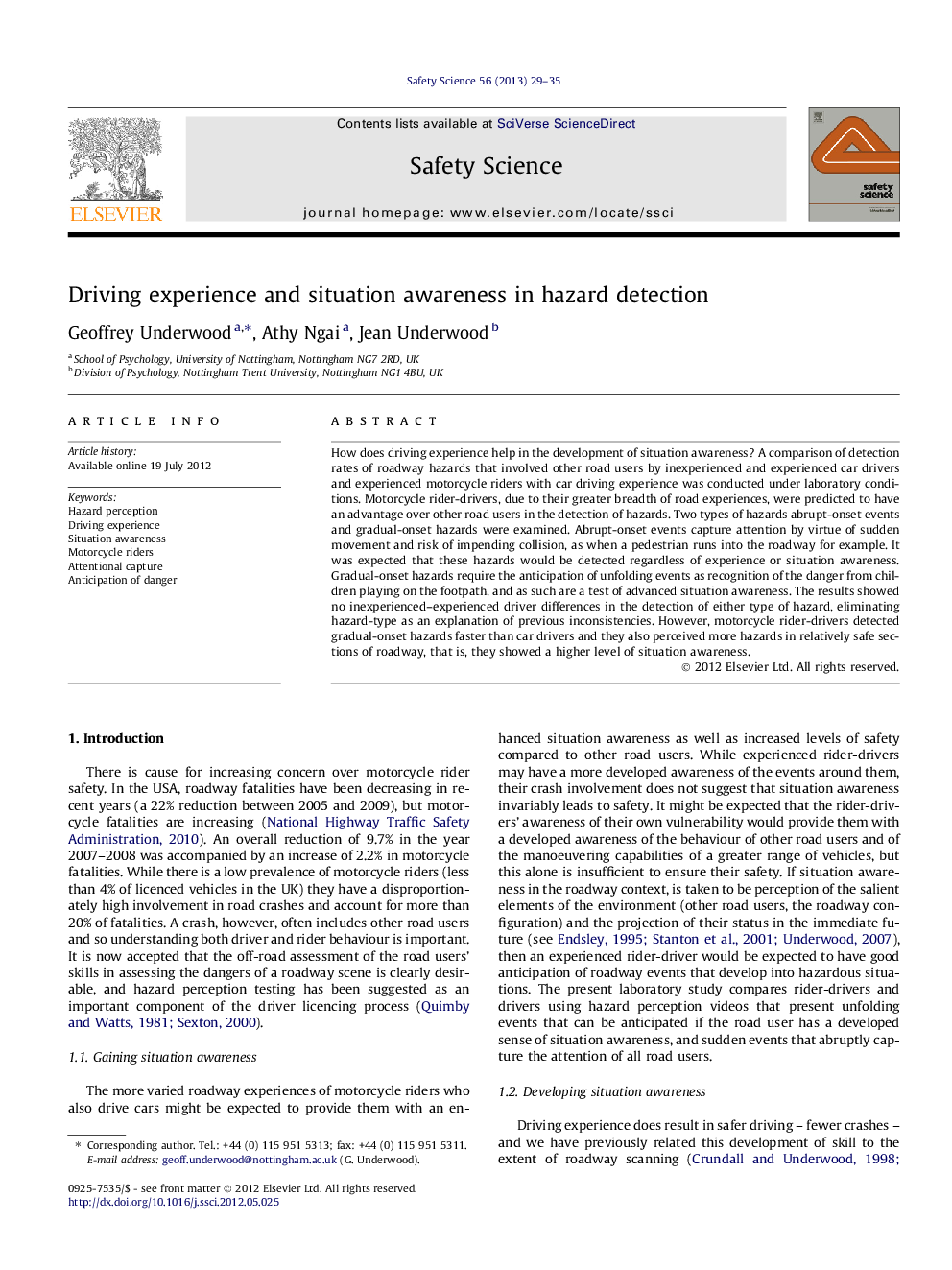| Article ID | Journal | Published Year | Pages | File Type |
|---|---|---|---|---|
| 589263 | Safety Science | 2013 | 7 Pages |
How does driving experience help in the development of situation awareness? A comparison of detection rates of roadway hazards that involved other road users by inexperienced and experienced car drivers and experienced motorcycle riders with car driving experience was conducted under laboratory conditions. Motorcycle rider-drivers, due to their greater breadth of road experiences, were predicted to have an advantage over other road users in the detection of hazards. Two types of hazards abrupt-onset events and gradual-onset hazards were examined. Abrupt-onset events capture attention by virtue of sudden movement and risk of impending collision, as when a pedestrian runs into the roadway for example. It was expected that these hazards would be detected regardless of experience or situation awareness. Gradual-onset hazards require the anticipation of unfolding events as recognition of the danger from children playing on the footpath, and as such are a test of advanced situation awareness. The results showed no inexperienced–experienced driver differences in the detection of either type of hazard, eliminating hazard-type as an explanation of previous inconsistencies. However, motorcycle rider-drivers detected gradual-onset hazards faster than car drivers and they also perceived more hazards in relatively safe sections of roadway, that is, they showed a higher level of situation awareness.
► Motorcyclists respond to hazards faster than inexperienced and experienced drivers. ► But faster responses only occur with gradual-onset hazards requiring anticipation. ► Motorcycle riders perceive the roadway as being generally more hazardous. ► Hazard perception measures do not distinguish between drivers of varying experience.
